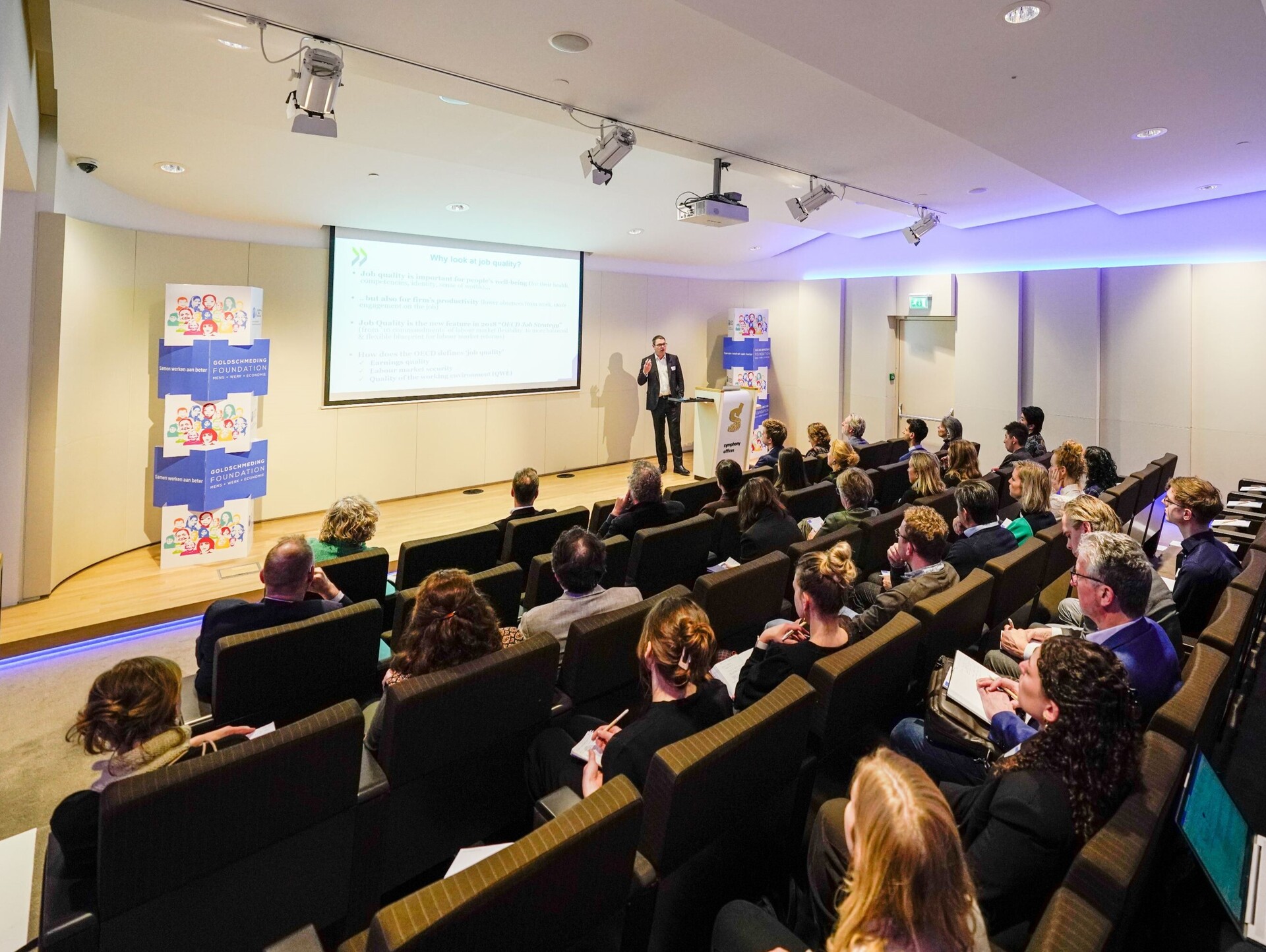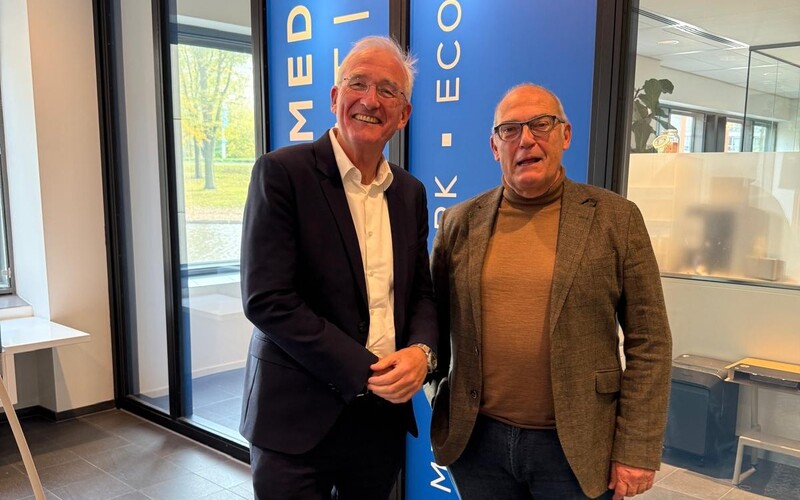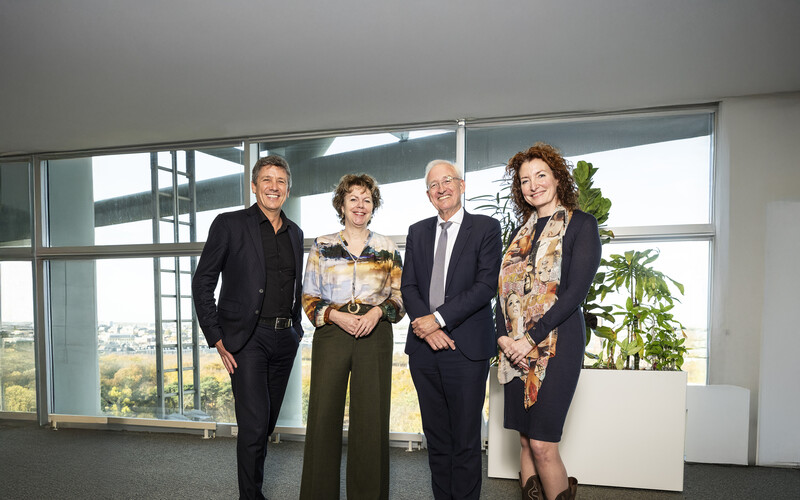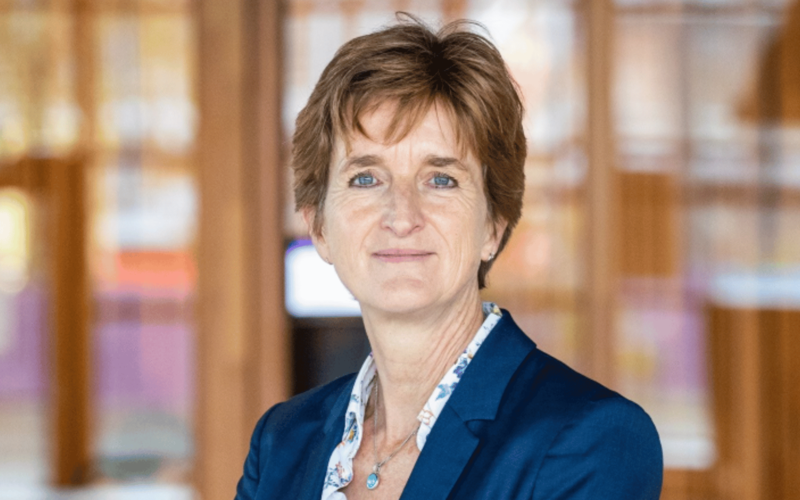
On December 6th 2023, the Goldschmeding Foundation and the OECD WISE Centre jointly organised the workshop ‘Assessing the Value of Work’. Building on the work programmes of the two organisations, this workshop enabled businesses, academic researchers and policy makers to dive deeper into the importance of work for people.
Work provides people with more than just pay, and many aspects of the experience at and around work affect people’s well-being. At the same time, financial and mental well-being, among others, can affect the extent to which people thrive in their job. There is therefore an important interdependency between employee well-being and proactive behaviour, productivity, and social mobility.
In the workshop, several key findings were presented:
Improving the quality of the working environment is a win-win for people and organisations During the workshop, dr. Fabrice Murtin presented the OECD Guidelines on Measuring the Quality of the Working Environment. Job quality is not only important for people’s well-being, but also for a firm’s productivity. Measuring the quality of the working environment therefore provides valuable insights for improving both aspects.
Having a job does not automatically improves people’s well-being
That work can be of great value to people, is well-known. However, the positive effects of working do not immediately follow having a job. More and more, it becomes evident that work is not valuable for everyone. Prof. dr. Paul de Beer presented the biannual Value of Work Monitor, which measures how work is perceived and valued by the Dutch population.Proactive career behaviour is a way to cope with transitions of the labour market
Several societal transitions impact work and careers, which can lead to job insecurity, stress and increased chances of unemployment. However, by improving people’s proactive career behaviour, these negative effects can be countered. Dr. Jessie Koen showed that a system-level perspective on stimulating proactivity is needed, to ensure that job security is future-proofed.Businesses affect people’s well-being as well as the environment – and measuring beyond financial performance is therefore necessary
Businesses have significant effects on people and society as a whole. Therefore, it is important to look beyond financial effects, to the non-financial performance of firms. The OECD Well-being framework, presented by Vincent Siegerink, provides a way for businesses to do so. By using this framework, business can improve their non-financial performance, benefitting both the organisation as well as the people and the environment.In the end, it is important to keep in mind that work is about human beings and people working together
During the panel discussion, four representatives with different perspectives on the labour market discussed the value and the future of work: Antoine Reijnders (VNO-NCM/MKB NL), Margaretha Buurman (UWV), Jaap Jongejan (Stichting SBI) and Bas ter Weel (SEO Economisch Onderzoek). They showed that it is important to not lose sight of the fact that work is essentially about people working together. To be a good employer, it is thus important to stay flexible: focus on skills next to education, on possibilities of technology instead of its threats, and keep developing your ethical and moral compass.
In essence, the workshop provided a multifaceted exploration of the value of work. By further diving into the various dimensions of work, from the quality of the working environment to proactive career behaviour and the societal impact of businesses, the workshop showed several perspectives for shaping the future of work. Through collaboration and open dialogue, the participants exchanged valuable insights and views on this important topic. We very much encourage everyone to keep this dialogue going and to keep in touch with the Goldschmeding Foundation and the OECD WISE Centre.


